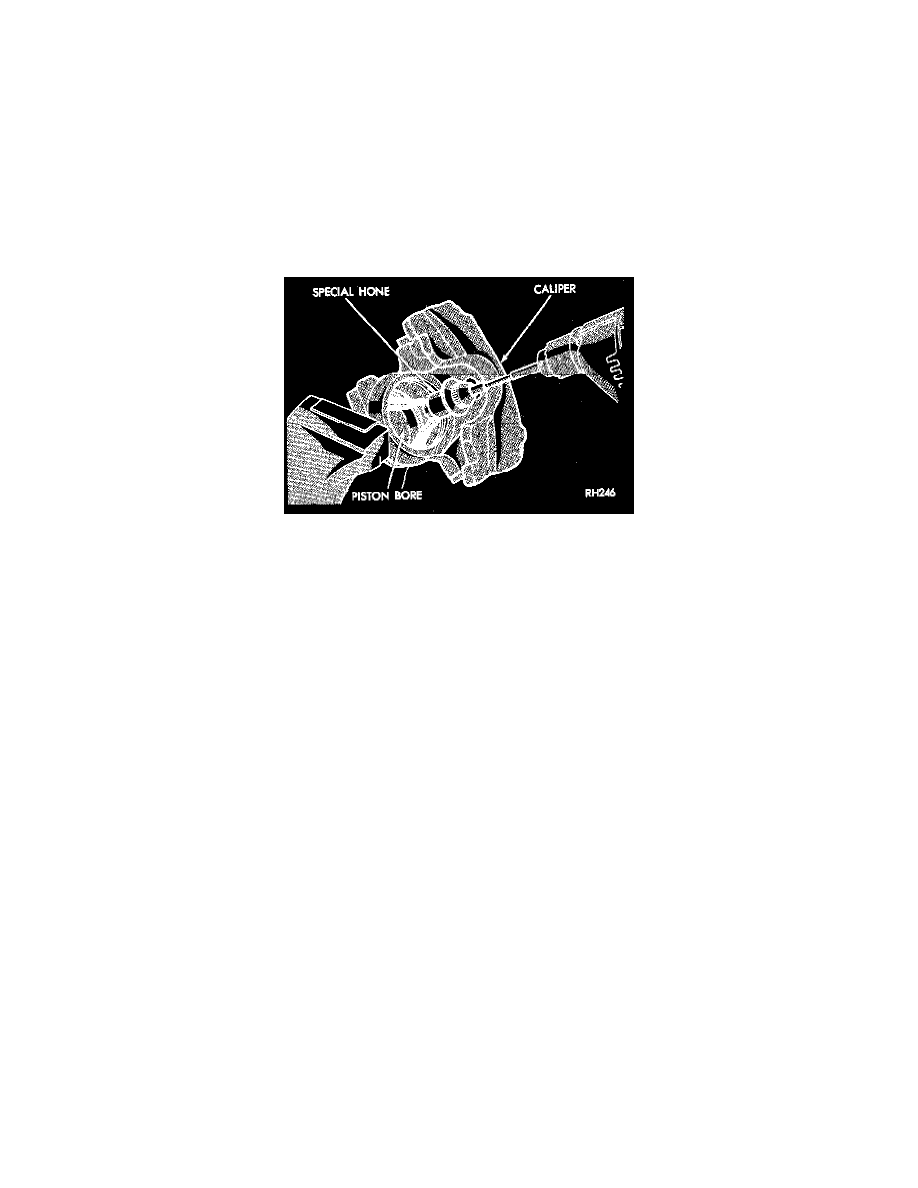RAM 2500 Van V8-5.9L VIN Z (1997)

Brake Caliper: Testing and Inspection
CLEANING
Clean the caliper components with clean brake fluid or brake clean only. Do not use gasoline, kerosene, thinner, or similar solvents. These
products may leave a residue that could damage the piston and seal. Wipe the caliper and piston dry with lint free towels or use low pressure
compressed air.
INSPECTION
The piston is made from a phenolic resin (plastic material) and should be smooth and clean. Replace the piston if cracked or scored. Do not
attempt to restore a scored piston surface by sanding or polishing. The piston must be replaced if damaged.
NOTE: If the caliper piston must be replaced, install the same type of piston in the caliper. Never interchange phenolic resin and steel caliper
pistons. The pistons, seals, seal grooves, caliper bore and piston tolerances are different for resin and steel pistons. Do not intermix these
components at any lime.
Lightly Polishing Piston Bore With Tool
The bore can be lightly polished with a brake hone to remove very minor surface imperfections. The caliper should be replaced if the bore is
severely corroded, rusted, scored, or if polishing would increase bore diameter more than 0.025 mm (0.001 inch).
